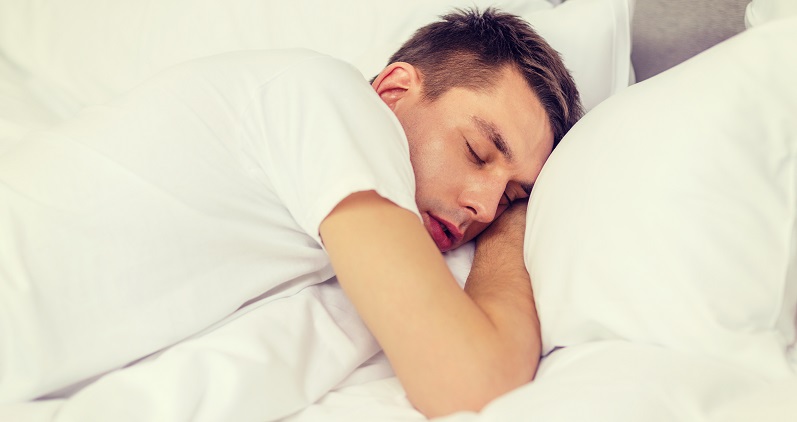Back Pain And Sleep Apnea – A Surprising Connection
Category: Back Pain | Author: Stefano Sinicropi

Sleep disorders and back pain are issues that oftentimes go hand in hand, even though they may not seem like they have much of an effect on one another. In fact, previous studies have shown that upwards of 67% of patients with insomnia deal with a co-existing chronic pain condition like back pain. Breaking out of the cycle of insomnia and back pain is something we’ve talked about on the blog in the past.
Another sleep disorder that can be closely related to back pain is obstructive sleep apnea. Sleep apnea is a condition in which breathing pauses or stops for a brief period while the individual is asleep. Oftentimes this occurs when the throat muscles relax and collapse while sleeping, and although breathing usually kickstarts a moment later, it can deprive the brain and body of crucial oxygen and interrupt restful sleep. While the condition has nothing to do with your back, it can certainly play a role in influencing your back health. We touch more on the connection between sleep apnea and back pain in today’s blog.
How Sleep Apnea Makes Back Pain Worse
Many of the factors that increase a person’s risk for developing sleep apnea also increase their likelihood that they will be dealing with an underlying spine disorder. For example, research shows that obesity, smoking and diabetes are risk factors for sleep apnea onset, and those factors also increase your risk of certain spinal conditions and chronic back pain.
However, sleep apnea can also play a clear role in the onset or worsening of your back pain issue. As we touched on above, sleep apnea leads to interrupted and disjointed sleep. Sleep is an incredibly important restorative period for your body. It’s a time when toxins and dead particles are filtered out of your blood stream, muscle fiber tears are mended and inflammation can be calmed and controlled. Without quality sleep, many of these processes can’t be effectively completed. Spinal muscles may remain weakened without prolonged sleep, and inflammation may persist. If you’re dealing with a muscle injury or a problem like a nerve issue that is being exacerbated by localized inflammation, lack of quality sleep can cause these conditions to persist.
Similarly, if pain and discomfort worsen, it will only make it harder for you to achieve restful sleep. If you’re already working to get quality sleep in spite of your sleep apnea condition, it’s only going to be more difficult to fall asleep and stay asleep if you’re dealing with pulsing or severe spinal pain. Similar to other sleep disorders, back pain and sleep apnea can create a vicious cycle that can be hard to break free from.
One positive about the connection between these two conditions is that addressing one problem can also lead to the improvement of another. Specifically, working to tackle your sleep apnea issue can see you regain more control over your back pain issue. Losing weight, giving up smoking and getting set up with a sleep aid device can all help you achieve more restful sleep. As a result of this restful sleep, your body may be better able to perform essential recovery functions while you’re asleep and address some of the root causes of your back pain. Improving your sleep habits may not fully fix your back pain issues, but improved sleep quality is an integral part of an effective comprehensive treatment plan.
So if you are interested in learning more about the connection between sleep apnea and back pain, or if you’re dealing with these conditions and want to make a plan to overcome both, reach out to Dr. Sinicropi and the team at The Midwest Spine & Brain Institute. We understand the influence a sleep disorder can have on your back pain condition, and we’re skilled at helping you co-manage these disorders. Give our team a call today at (651) 430-3800 for more information or to set up your first appointment.